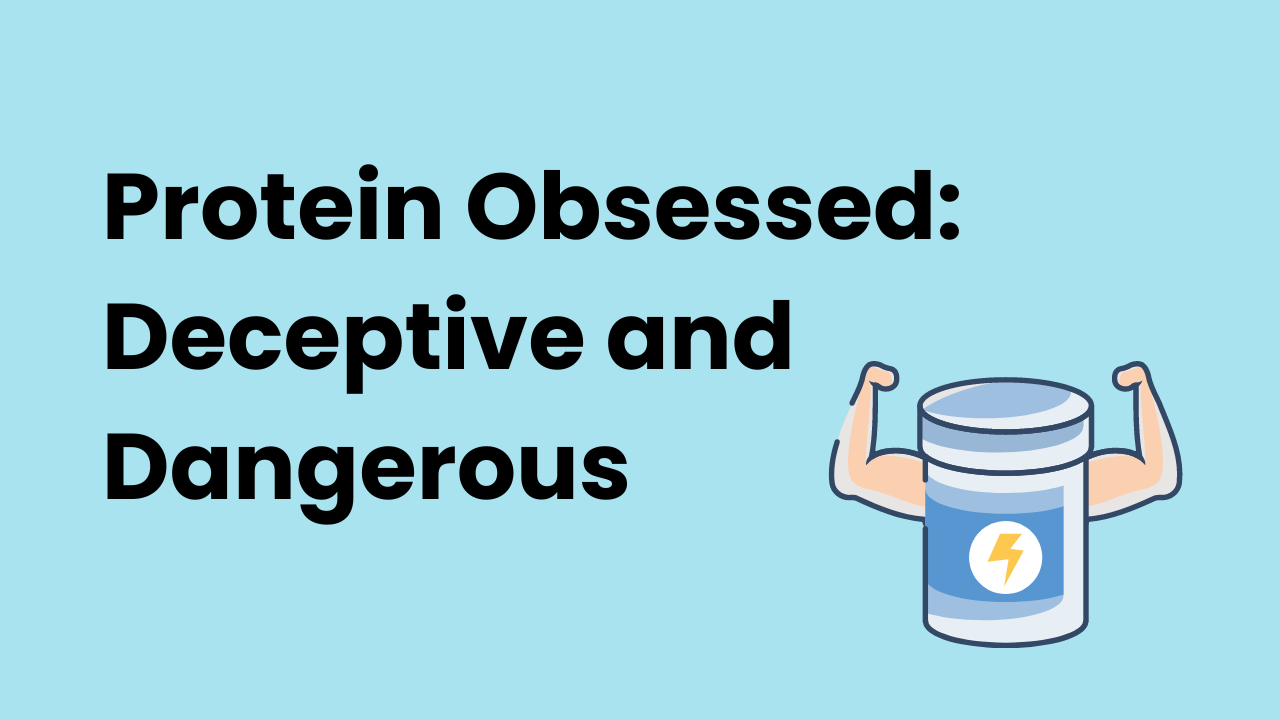Protein Obsession in Eating Disorders: Healthy or Dangerous?
Aug 31, 2018
Recently, I received a message from one of my Instagram followers asking if I could give them advice on how much protein they should be eating. They explained to me that they are still gaining weight in their recovery from an eating disorder, and that a voice in their head keeps telling them that they need to be eating lots of protein. Their message instantly transported me back to my own recovery journey and my obsession with protein intake.
Why Protein Obsession Matters in ED Recovery
If you're currently making food choices based primarily on protein content, you're not alone. This fixation is incredibly common in eating disorder recovery, yet it's rarely discussed openly. While the diet industry promotes high-protein diets as the golden ticket to health, the reality is far more complex – especially for those in recovery.
The Psychology Behind Protein Obsession
In my own experience, protein obsession wasn't really about protein at all. It was about a sense of control. I convinced myself that maximizing protein intake would help me:
-
Boost metabolism
-
Build muscle more efficiently
-
Curb hunger and appetite
-
Maintain a sense of "healthy eating"
But what I didn't understand then was that these beliefs were rooted in fear, not science.
The Hidden Dangers of Excessive Protein Intake
While adequate protein is essential for health, excessive intake can lead to serious health complications that aren't widely discussed:
1. Digestive Issues
Excessive protein often leads to constipation, particularly when it replaces fiber-rich carbohydrates in your diet. This is literally your body telling you something's wrong!
2. Dehydration Risk
High protein intake increases nitrogen levels in your body, forcing your kidneys to use more water for processing. This can lead to chronic dehydration if not carefully monitored.
3. Kidney Strain
My personal wake-up call came when blood tests revealed elevated BUN (Blood Urea Nitrogen) levels, indicating my kidneys were working overtime to process excess protein. Recovery helped restore these levels to normal.
4. Bone Health Concerns
Perhaps most surprisingly, excessive protein can actually compromise bone health. The increased acid load from protein metabolism can force your body to leach calcium from bones to maintain pH balance.
Food Freedom After Protein Obsession
Recovery isn't about replacing one set of food rules with another. True freedom comes from developing a balanced relationship with all foods, proteins, carbohydrates, and fats included! Your body is incredibly wise and doesn't need rigid protein rules to thrive.
Balance means different things for different people, but generally involves:
-
Making food choices based on both nutrition and enjoyment
-
Bringing awareness to your body's needs and acting on them intentionally
-
Working with a coach or provider to develop a sustainable approach
While this post discusses the dangers of protein obsession, it's important to remember that recovery is deeply personal. If you're struggling with thoughts about protein intake and want to find freedom from disordered eating, schedule a consultation call for 1-1 coaching here!




